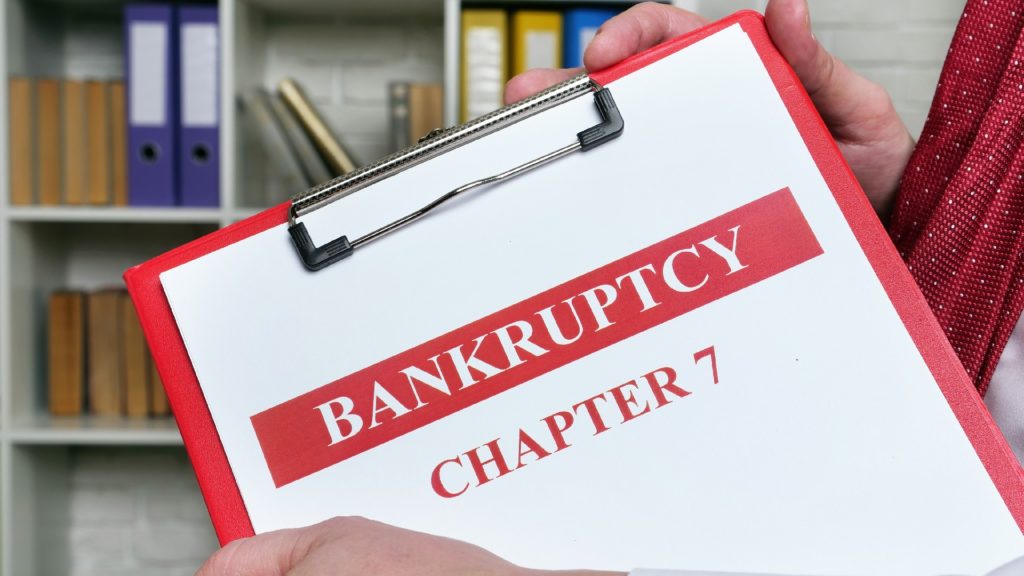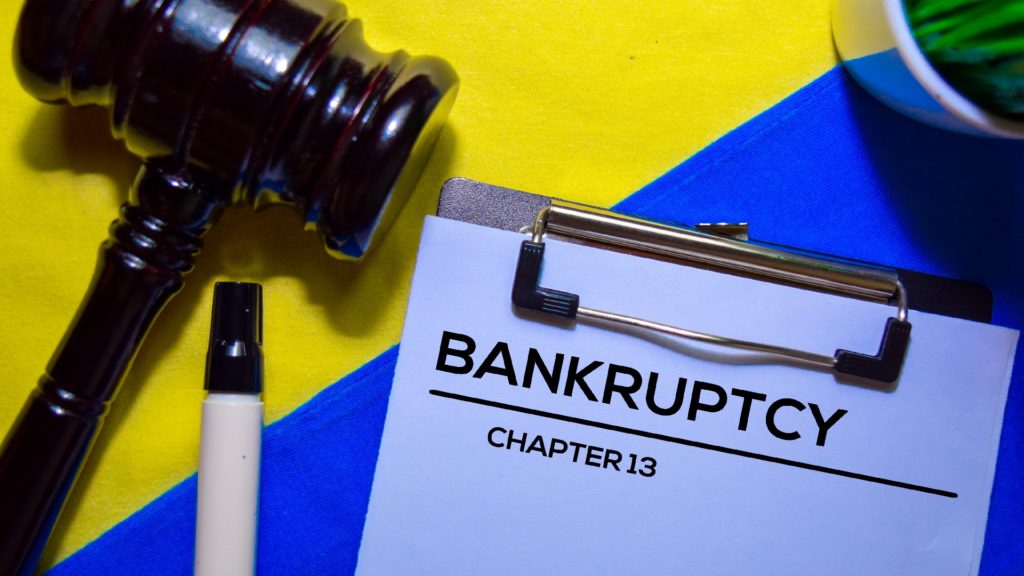
When you’re already struggling to make ends meet, wage garnishment can make it feel like you’re barely treading water financially. The bankruptcy attorneys at Leinart Law understand how stressful these circumstances can be. Knowing how wage garnishment works and ways to stop it in Texas can give you some relief and help you get your finances back on track.
What Is Wage Garnishment?

A wage garnishment is an order that requires your employer to withhold a certain amount of money from your paycheck and send it directly to one of your creditors. In most cases, a creditor must get a court order before garnishing your wages. However, if you owe child support, alimony, federal student loans or some taxes, these creditors typically do not have to get a judgment from the court to garnish your wages.
Which Creditors Can Garnish My Wages in Texas?

Under Texas law, most creditors are not permitted to garnish your wages unless you owe court-ordered child or spousal support payments, student loans or taxes. Payment for consumer debt such as credit card balances, medical bills or auto loans cannot be garnished from your wages.
However, it’s important to keep in mind that if you receive your wages from a source outside Texas or work for an out-of-state company, a creditor may be able to get a wage garnishment order in that state. Creditors may also be able to seize other assets such as money in bank accounts. If you are worried about this happening or if you’re already dealing with wage garnishment, it’s critical to seek the counsel of an experienced Texas debt relief attorney who can help you understand your rights and options.
Limits on Wage Garnishment in Texas

Limitations on wage garnishment in Texas vary depending on the type of debt. For child or spousal support, a creditor can garnish up to 50% of your disposable income. The amount the IRS can withhold for federal back taxes varies based on your number of dependents and deduction rate.
The U.S. Department of Education can withhold up to 15% of your disposable income or 30 times the minimum wage. However, due to the COVID-19 pandemic, the DOE has put a halt on wage garnishment for student loans. If your wages are still being garnished for federal student loan payments, contact a Dallas debt attorney.
How to Stop Wage Garnishment in Texas

Even with these limits, wage garnishment can make it very difficult to get by or pay off any other debt. One way to stop it is to pay off the debt. Another way to put a halt to wage garnishment is to file bankruptcy in Texas. As soon as your bankruptcy petition is filed, the court will grant an automatic stay that forbids creditors from pursuing collection actions or garnishing your wages. An automatic stay can also stop:
- Harassing collection calls and correspondence
- Foreclosure
- Repossession
- Lawsuits
Although filing bankruptcy can stop wage garnishment, as mentioned above, some debts such as domestic support, student loans and income tax are non-dischargeable. Depending on your specific financial circumstances, your lawyer may recommend debt relief options such as negotiating with creditors, or they may advise you to file Chapter 7 or Chapter 13 bankruptcy.
How Chapter 7 Bankruptcy Can Give You a Clean Financial Slate

Chapter 7 bankruptcy can let you completely wipe out debt such as credit cards, medical bills and personal loans. Although it is a liquidation bankruptcy, the exemptions under Texas bankruptcy law usually enable consumers to keep their homes and cars. In fact, most people who file Chapter 7 bankruptcy in Texas don’t have to give up any property at all. Once your debts have been discharged in Chapter 7, you are no longer responsible for them. This means that if your wages were being garnished to repay any of them, a creditor can no longer take money from your paycheck. The aim of filing Chapter 7 is to get a fresh financial start. This option is usually best if you:
- Have a great deal of credit card debt
- Have substantial medical bills
- Have been inundated with collection calls and notices
- Don’t earn enough to pay off bills
- Are current on house and car payments or don’t own much property
- Have a poor credit score
If your income is equal to or below the state median income level, you are most likely eligible for Chapter 7 bankruptcy in Texas. However, if you’re substantially behind on your mortgage or car payments and can’t catch up or work out a loan modification, they may still be subject to foreclosure or repossession. In this case, you may want to consider filing Chapter 13 bankruptcy in Texas. A bankruptcy attorney will do a comprehensive evaluation of your finances and advise you of which debt relief solutions may best meet your needs.
How Can Filing Chapter 13 Bankruptcy in Texas Help Stop Wage Garnishment?

Regardless of whether you file Chapter 7 or Chapter 13, the automatic stay will halt collection actions such as wage garnishment. Chapter 13 is a reorganization bankruptcy that lets you restructure your debts and pay some or all of them back with a repayment plan over a period of 3-5 years.
If you aren’t eligible to file Chapter 7 and have sufficient income to pay off a portion of your debts over time, Chapter 13 can be an effective solution to stop wage garnishment and help you get your finances in order. Chapter 13 bankruptcy can also be a good solution if you own property such as a home and vehicles because it can let you restructure loans into more manageable payments, saving you interest. Unsecured debts such as credit card balances are usually reduced and completely discharged when your payment plan is completed.
How Can a Texas Debt Attorney Help Protect My Wages From Garnishment?

If you receive a notice of a wage garnishment order, it’s important to contact a Fort Worth debt relief attorney right away. A lawyer can help you file an exemption claim or raise an objection to the garnishment. There are deadlines and procedures for challenging wage garnishment. Your attorney will ensure that all relevant information is included and clearly state your reasons for exemption or objection. Your attorney can also represent you at the garnishment hearing that will most likely take place once you file your objection. If a creditor has illegally garnished your wages in Texas, a debt attorney can also help you take legal action against them.
Contact a Wage Garnishment Attorney in Texas to Learn More

With more than 15 years of experience in debt solutions and bankruptcy law, our team at Leinart Law Firm can help you find solutions to stop wage garnishment and get your finances in order. Please email us, use our convenient chat feature or fill out the contact form on our website to schedule a free case evaluation. Our bankruptcy attorneys serve clients in Dallas, Fort Worth, Plano and throughout north Texas.


